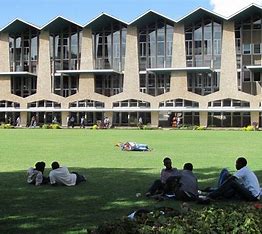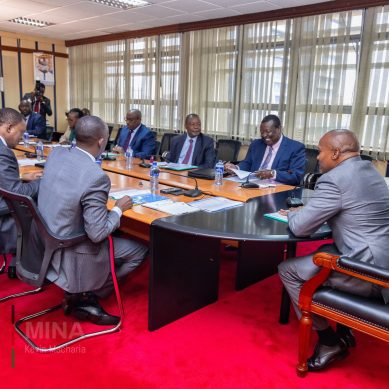
Most universities, especially in Africa, are yet to embrace the truth that we cannot use disciplinary products of the education system to integrate or reintegrate anything. Time is fast-arriving when graduates of the strictly disciplinary curriculum will be rejected for further post-graduate education in universities where integration and reintegration of knowledge is being accommodated.
Those rejected will be told that they are graduates in expired curricula. This will be the cost of universities resisting opening up to the new cultures of knowledge. Our universities, to remain relevant in an integrating and integrative century, must open up to the new cultures of knowledge production and to integration and reintegration of knowledge. They must first become integrative and integrating to reintegrate knowledge and produce graduates with integrating and integrative minds.
Although 50 years ago E. Janstch (1972) called for Interdisciplinary and Transdisciplinary Universities as a systems approach to education, for meaningful and effective integration and reintegration of knowledge, which we should have embarked on, we need also to advocate for crossdisciplinarity, but most especially, non-disciplinarity. Better late than never!
We must emphasise that African universities are grossly behind on the path of reintegration of knowledge, which is an unfortunate reality. Most of the universities are re-entrenching disciplining of knowledge in an age when un-disciplining knowledge is an imperative for the 21st century. They are still stuck with measuring success in terms of personal knowledge and personal achievement.
However, disciplinarity and its disciplinary graduates cannot usher African countries in the cyberage. It makes African countries a heavy burden for the cyberage.
There is need to rethink higher education altogether to emphasise collective knowledge, critical thinking and production of critical individuals rather than subservient ones.
Designers of education programmes must open up to the new cultures of knowledge so that instead of continuing to glorify individual achievers, we have education curricula that can produce people who value teamwork and can work think and reason in integrated teams and communities of knowledge, benefit from realms of meaning and understanding and develop new wisdoms and insights through crossing knowledge boundaries and linking of knowledge by means of the team sciences – also called learning sciences – of interdisciplinary science, cross-disciplinary science, transdisciplinary science and non-disciplinary science.
Accordingly, we shall create new professions and produce the professionals we need for the cyberage: broadminded, not narrow-minded, and able to interact, learn from each other and pursue joint goals in integrated teams. Pursuing multidisciplinary education is not going away from disciplinary education but re-entrenching it. It only reduces the distances between the disciplinary knowledge workers and allows them to continue to produce knowledge in their disciplinary cocoons.
We hope that this bibliography will prove to be an essential knowledge tool for students, teachers, professionals, practitioners and institutions not only in Africa but also elsewhere in the world towards fitting in the cyberage.
The 21st century does not just need producing masses of graduates at whatever level. It needs graduates who are interconnected between themselves and in their minds and can interconnect, integrate and reintegrate their minds easily with others to tackle the wicked problems of the world local, national, regional, continental and global. The problems themselves are interconnected and do not lend themselves easily to the narrow analyses of disciplinary knowledge workers.
The following observations are critical if African universities are to meaningfully embrace knowledge integration and reintegration this millennium.
- There is chaos in the disciplines. We must cross disciplinary boundaries to create new knowledge and new types of experts. Civilisation of man and society is critical, but some civilisations require a different type of knowledge generated differently.
- Currently it is team science-based civilisation, not civilisation made by individuals and imposed on others. Team science demands we redesign the future with new cultures of knowledge that value it. It means we must rethink the way we prepare students for academic careers. We must cross disciplinary boundary to produce liberating, emancipatory knowledge that will equip us with graduates that are not fearful and can engage in curiosity driven research, encouraged by connecting of the sciences – natural science, social science and the humanities (or the arts). It is unintelligent to disconnect the sciences. It produces aliens.
- Discipline-based academies are no longer suitable in a century of an increasingly globalized world under the reign of the cyberage. The end of academic tribes, academic territories, academic hegemony and academic ethnocentrisms arrived long ago, but spilled over to the 21st century because of the slow professors who feared loss of their academic tribes, academic territories, academic hegemony and academic ethnocentrisms.
- The quests for knowledge must be for integrating knowledges of the team sciences – interdisciplinary science, cross-disciplinary science, transdisciplinary science and non-disciplinary science. With these then we are sure we have landed in the age of smart teaching and smart learning, away from the sterile teaching and learning, which projects the teacher as all-knowing, dominant Homo academicus.
- We are sure that we can deconstruct and reconfigure knowledge and action for meaningful and effective change for a fast-changing dynamic 21st century.
- Once we adopt the new sciences we shall improve the quality of university education, strengthen the learning experience, and have, and already have, new types of professors who do not fear criticism or challenge of their ideas by their juniors.
- We shall train employable graduates who are broad-minded and future-ready professionals, with integrated mindset towards sustainability and creation of new values applicable to the 21st century. Both the professors and their graduates will be integration and integrating agents who will not fear to venture beyond what they know or to collaborate with others in other knowledge fields. They will be able to work to influence policies and actions inter-sectorally, unlike in the past when they were limited to prescribed sectors.
As liberated individual, the knowledge workers and their learners will be more independent-minded and able to engage in critical thinking and alternative analyses towards better informed solutions to our complex issues.
More important, they will be more willing to share knowledge rather than conceal it for individual reward and progress. They will not develop knowledge hiding practices in the organisations they work in and will be freer working amicably with other organisations.
- When there is a critical mass of knowledge workers, learners, institutions, practitioners and especially (political) leaders that accepts that a sustainable society needs integrated knowledge, then we shall be truly on the road to sustainability and sustainable development. The survival of humanity and the environmental systems depends on this collective habit of mind: that there can be no sustainable society without integrated knowledge. All knowledge creation should be towards integration of all knowing for sustainability. Accordingly, we must all be open to unlearning and relearning with an open integrated mindset and becoming a new category of professionals called future-ready professionals.
- Knowledge is a social enterprise, but high intellect has tended to make knowledge workers more and more unsocial through creation of smaller and smaller knowledge cocoons with impenetrable walls. This has been reflected in the brains of knowledge workers, turning them into asocial beings, arrogant and self-conceited. As a result, knowledge has been dissocialised giving it the deceptive stance of pure knowledge. Yet organisation of knowledge has been pursued socially and the hierarchies are socially demarcated.
- Women have dominated the crusade for integration and reintegration of knowledge, and hence creation of a new collective mind set of knowing. This is not surprising. Women, unlike men, tend to see the world as one interconnected whole and naturally seek connections. Environmentally speaking creation of walls between knowledges and of islands in the physical world, makes it difficult for women to manage the environment, which is their natural duty. According to one intellectual, men’s brains are full of small unconnected boxes, which do not allow communication with each other.
When it comes to discussion, it is one thing at a time, and no linking. This is the tragedy of education. In fact, the man’s brain is correctly referred to as nothing box and can relapse into thinking about nothing in his nothing box. However, for women their brains are one whole box in which interconnections are the rule rather than the exception. Energy called emotion drives the connections.
Men tend to do one thing at a time or to have nothing in their head, and can stop thinking or to care altogether, whereas women never stop thinking because they are all the time emotionally (humanly) seeking connections. This could explain their predominance in the knowledge reintegration crusade that is as critical as internet in the 21st century.
We cannot do without internet and we cannot do without reintegration of knowledge in an internet dominated century. Definitely we cannot do without the leadership of the knowledge reintegration crusade is led by women.
- There is need to periodically analyse the motivations, attitudes, skills, and behaviours of academics in the knowledge integration and reintegration crusade.
- Our universities are heavily dominated by slow professors (academics resistant to knowledge integration and reintegration
- We need our universities to manage knowledge integration across disciplinary boundaries
- Time for weaving different knowledge systems to generate new research skills for the future is now’
- We need interactive governance in place of bureaucratic governance of our universities in the 21st Century.
- We need new interacting sciences of interdisciplinary, cross-disciplinary, transdisciplinary and non-disciplinary action research in all universities.
- Our universities must take sustainability science, which requires greater interaction between the arts (humanities), social science and natural sciences rather than segregation of knowledges.
- Our universities need to create new communities of practice, learning, meaning and identities.
- Our universities must begin preparing future teachers for integration and reintegration of knowledge.
- Our universities must be the leaders in advancing citizenship and social justice through new structure and governance.
- Universities for the 21st Century must revitalize indigenous knowledge and science as an integral aspect of science training and research.
- Out universities must lead in bonding today’s cultures with scientific thinking.
- Our universities must resist tearing the social sciences, humanities and natural sciences apart through political and monetary manipulation by politicians or people of power.
- At the centre we need integrative, interactive and sustainability politics to counteract the current apartheid like governance tearing the once colonial enclaves into minute, unviable entities.
- Epistemic apartheid in our universities does not add any value to intellectual and academic processes.
For God and my country – Uganda!
- A Tell report / By Prof Oweyegha-Afunaduula, a former professor in the Department of Environmental Sciences of the Makerere University, Uganda











